by Amber Lee, Eric Wong and Rachel Lee
Background Context
The confines of quarantine have distorted people’s perceptions of time and one widespread effect is unproductivity. We conducted a survey and determined that 76.9% of respondents struggled with lack of temporal structure as a result of isolation. Said pool showed interest in task-managing tools to increase their productivity levels throughout the day.
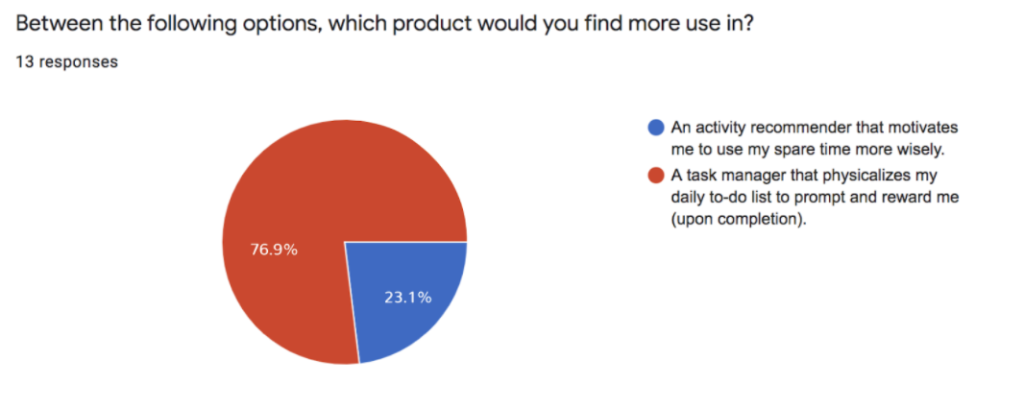
To address this phenomenon, we are proposing a task manager called DeskMate that physicalizes daily to-do lists, prompts efficiency and rewards users upon completion. Our intervention is largely inspired by BJ Fogg’s Tiny Habits work and the idea of providing context for cognition. We are utilizing physical components to prompt and remind users of their tasks, and digital components to keep them accountable and motivated. In short, we have designed a small machine that dispenses time cards, a physical touchpoint with a distinct presence.
How This Works
To initiate a work session, users push the “let’s work” button on the top of the machine. In line with Robert Caldini’s ideas on consistency, pushing a button underscores the user’s willingness to actively engage in their work session, which prompts users to follow through in completing items. DeskMate pulls users’ scheduled tasks, meetings, events, etc. from their Apple or Google Calendars (with Bluetooth) and prints them on physical cards that can be re-used due to Xerox’s new reusable paper technology. Users are prompted by the digital screen to insert unfinished items at the end of each work session so the machine may update the cards’ contents and levels of urgency. If items are added throughout the day, DeskMate will print them accordingly.
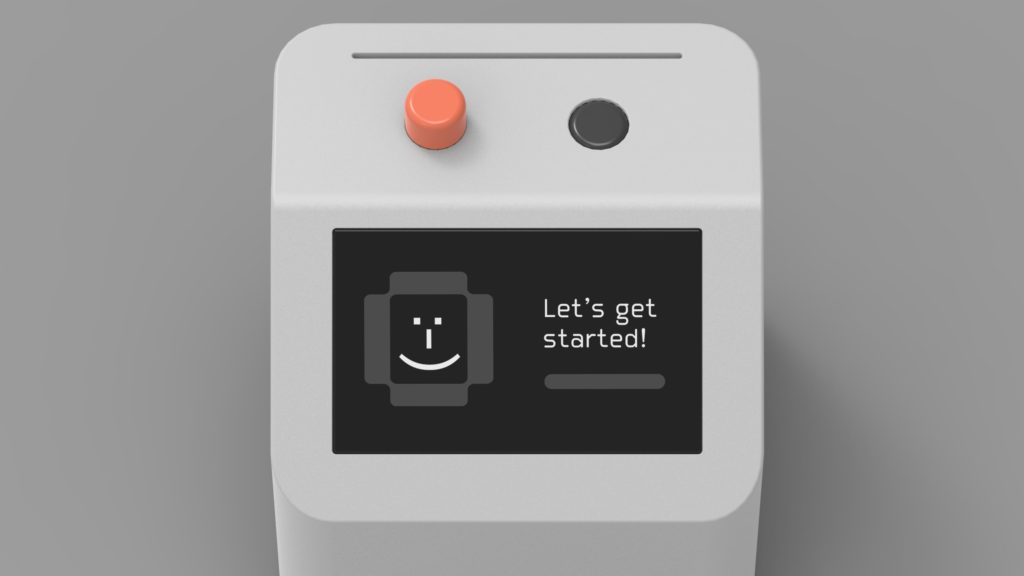
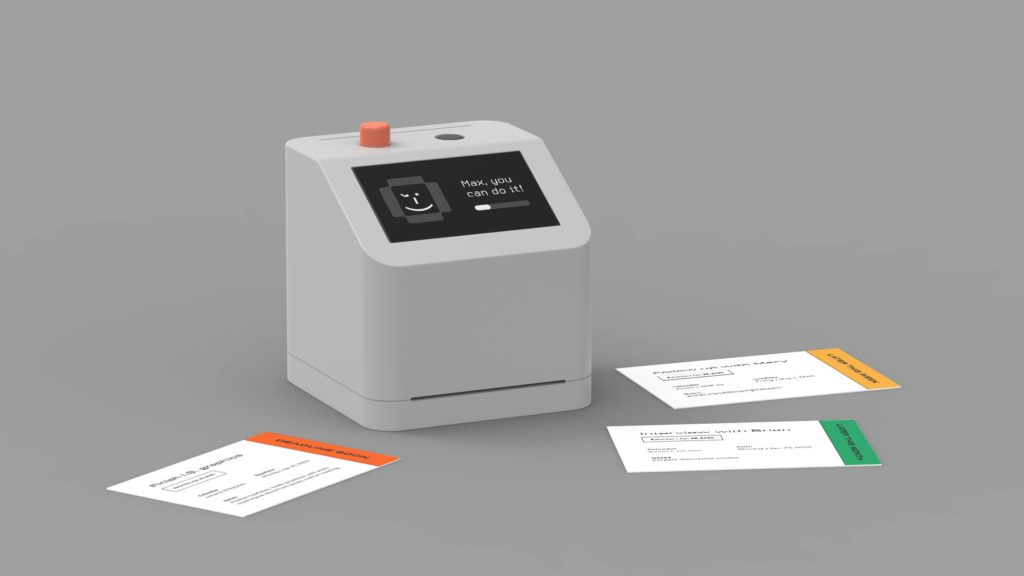
Each item card is designed for simplicity and ease of reference, featuring crucial information such as descriptions, deadlines and notes. Each card features either a red, orange or green tab to reflect the urgency of the item, from most urgent to least urgent respectively.
As users work, they can easily reference the card items laid out in their workspace. Users feed complete cards back into DeskMate, where the light sensitive paper pigments are broken down and the ink fades after a few hours, priming the cards so they can be reprinted on. Each completed item causes an emoticon that lives on DeskMate’s interface to display an emotion ranging from encouraging to amazed, prompts positive messaging, and increases the user’s daily productivity percentage to keep users accountable and motivated. Based on the theory of loss aversion, we aim to persuade users to work productively through small incremental wins throughout the day rather than discourage incomplete tasks from negatively affecting their final productivity score.
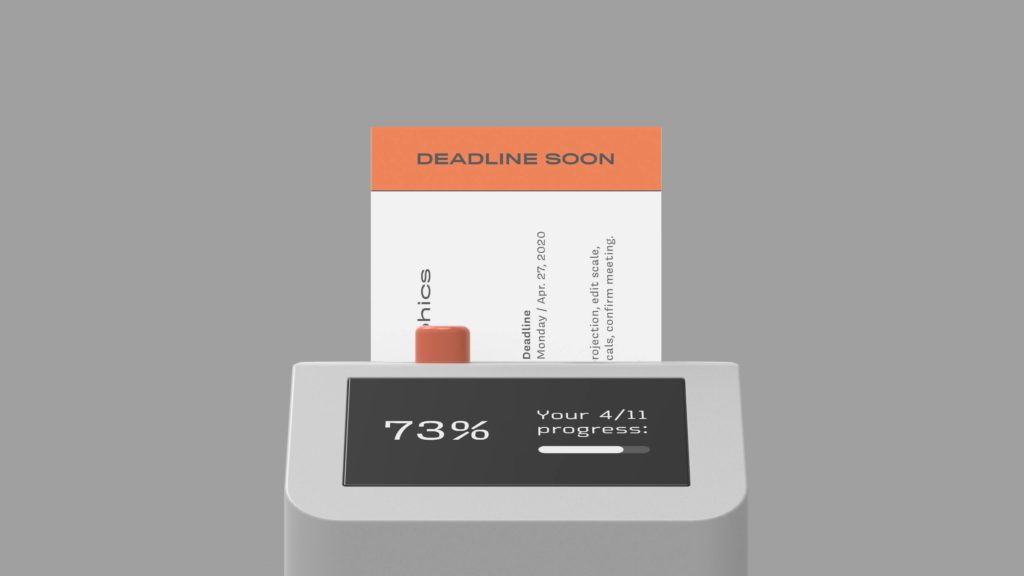
At the end of the work day, users push the ‘end session’ button, creating closure to their work session. Users are prompted by the interface to reinsert any incomplete card items to be reprinted with an appropriate level of urgency the next day. Further, the interface displays a final percentage of tasks completed on the dispenser interface to give users a sense of satisfaction and completion, and encourage them to maintain a productive work flow during the next day.
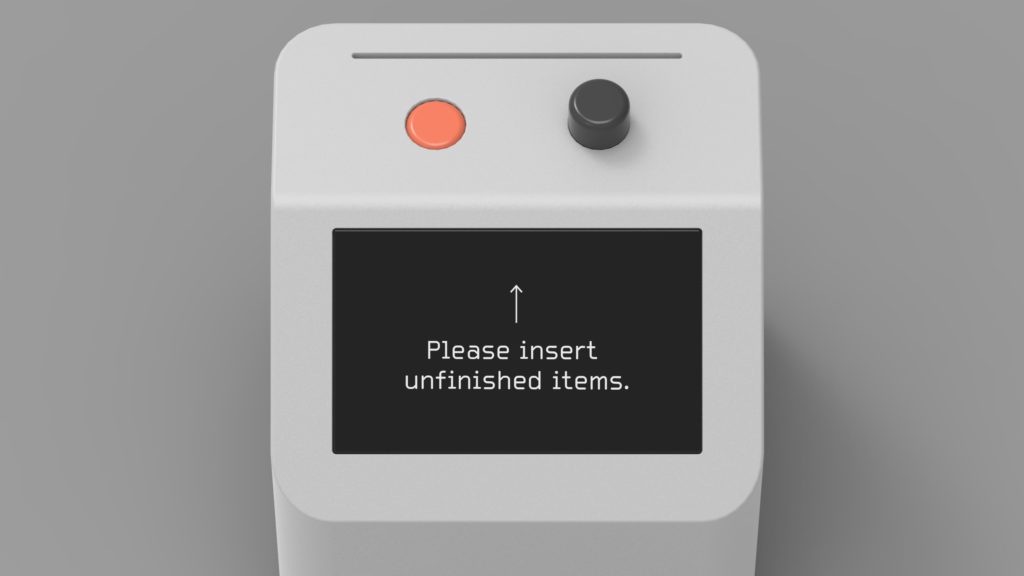
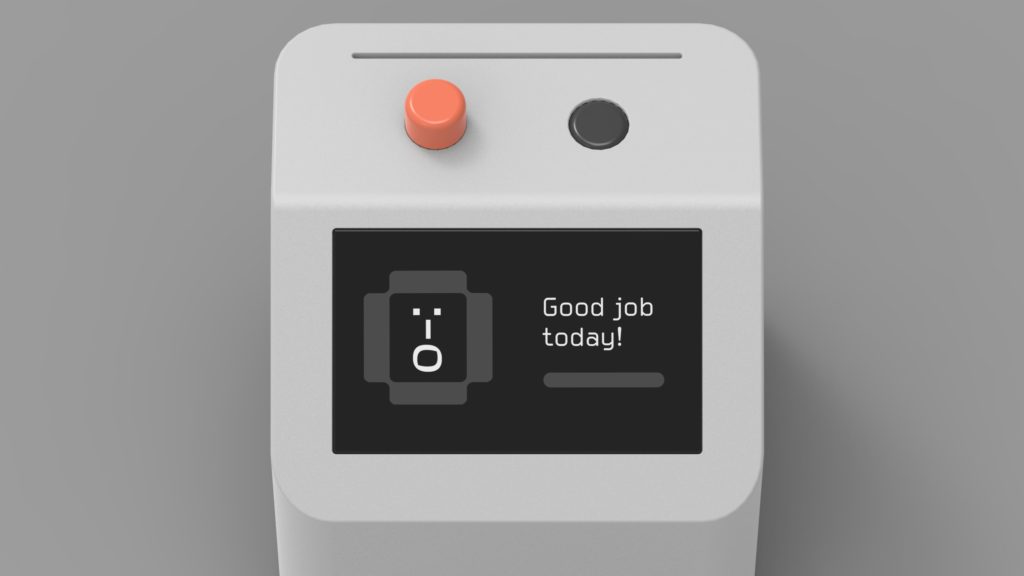
Final Video Presentation